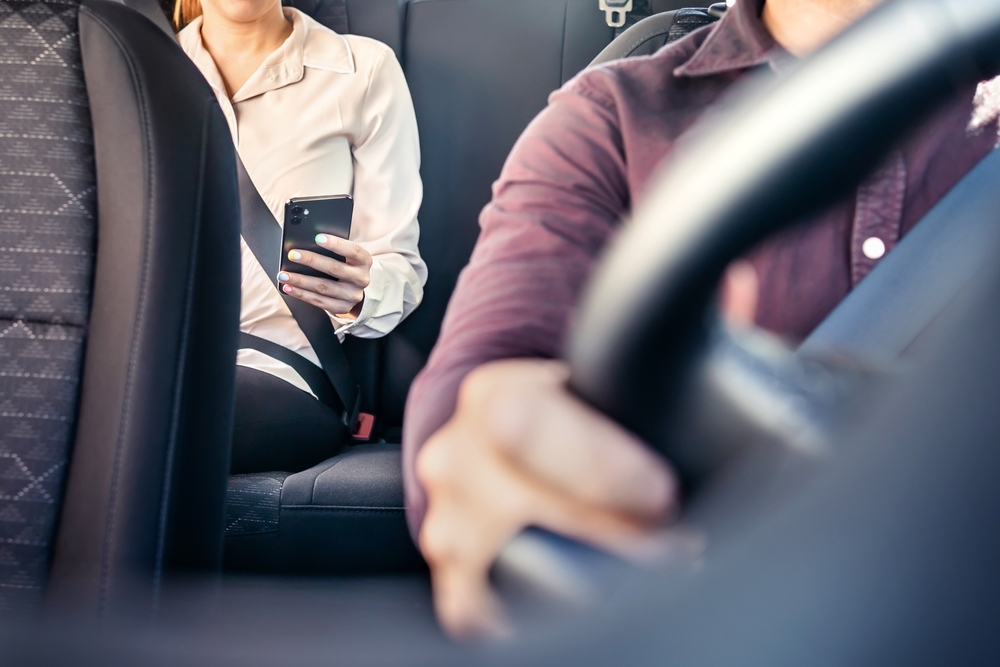
Millions of New Jersey residents use Uber or Lyft to get around—whether it's a quick ride home, a trip to the airport, or a safe ride after a night out. These services are built on the promise of convenience and safety. But when something goes wrong, passengers are often left asking: Are the safety standards as strong as they seem? And more importantly—what happens if you get hurt during the ride?
If you've been injured in an Uber or Lyft accident, understanding how their safety protocols work—and where they fall short—can make all the difference in protecting your rights.
Let’s break down what rideshare safety really looks like, what passengers can expect, and when to call an attorney.
Do Uber and Lyft Have Passenger Safety Standards?
Yes, both Uber and Lyft have publicly promoted safety policies. These include:
- Background checks for drivers
- In-app emergency features
- Insurance coverage during trips
- 24/7 support for incidents
But just because policies exist doesn’t mean they’re always enforced—or that they fully protect passengers.
For example, while Uber and Lyft claim to perform background checks, they typically rely on third-party screenings, which usually don’t require fingerprinting. This means serious red flags can slip through, especially if offenses aren’t reported or happen in other states.
What Happens If You're Injured in a Rideshare Accident?
If you're a passenger and your Uber or Lyft is involved in a crash, you may have a legal right to compensation—but getting that compensation isn’t always easy. Unlike traditional taxi companies, Uber and Lyft classify their drivers as independent contractors, which can complicate who’s liable.
Here's how insurance coverage typically works:
- Offline: If the app is off, the driver’s personal insurance applies.
- App On, No Passenger: Limited liability coverage from Uber/Lyft may apply.
- Passenger in the Car or En Route: Uber and Lyft provide up to $1 million in liability coverage.
Sounds good, right? In theory, yes. In practice, insurance companies may delay or deny claims, and you may be stuck navigating multiple policies—your driver’s, the rideshare’s, and possibly another driver’s insurance if they caused the crash.
What Types of Accidents Can Rideshare Passengers Experience?
When we think of rideshare accidents, we often picture a crash involving another vehicle—but that’s just one possibility. Other common incidents include:
- Injuries from sudden braking or reckless driving
- Assaults or inappropriate behavior by the driver
- Collisions caused by distracted driving
- Pedestrian accidents while exiting the vehicle
- Trips and falls due to unsafe entry or exit conditions
Even in non-crash incidents, Uber and Lyft may still bear responsibility—especially if the driver’s conduct or vehicle condition contributed to your injuries.
Are Uber and Lyft Drivers Properly Vetted?
This is where things get murky.
Uber and Lyft conduct basic criminal and driving record checks, but there are major gaps. Many drivers are approved without ever undergoing an interview, vehicle inspection, or in-person training. And because they’re classified as independent contractors, Uber and Lyft distance themselves from full responsibility when something goes wrong.
In recent years, lawsuits have alleged that Uber and Lyft failed to remove drivers with prior complaints—resulting in assaults, harassment, and preventable injuries.
How Can You Protect Yourself as a Passenger?
While Uber and Lyft have safety features built into their apps, passengers still need to be proactive. Here are a few steps you can take every time you ride:
Confirm the Driver and Vehicle
Check the license plate and driver name before entering the car. If anything doesn’t match the app, don’t get in.
Share Your Trip
Both apps allow you to share your ride details with a friend or family member in real-time.
Sit in the Back Seat
This gives you more space and easier access to the door in case of an emergency.
Stay Alert
Avoid wearing headphones or zoning out completely. Pay attention to the route and any unusual behavior.
Report Any Concerns Immediately
Use the app to report unsafe driving, inappropriate behavior, or accidents.
These steps won’t prevent every issue, but they do help establish a clear record if something goes wrong—and that’s important for legal purposes.
What If the Driver Was At Fault?
If your Uber or Lyft driver was responsible for the crash or incident that caused your injuries, you may be able to file a claim against:
- The driver’s personal auto insurance
- The rideshare company’s commercial policy
- Any third party involved in the crash
In New Jersey, filing a claim also involves understanding your own Personal Injury Protection (PIP) coverage, which may affect how and when you can pursue a lawsuit.
An experienced personal injury attorney can help sort through these policies, determine fault, and ensure you're not left dealing with hospital bills on your own.
Similar Post: Who Pays the Bills? Navigating Compensation After a New Jersey Uber/Lyft Accident
What Compensation Can You Recover After a Rideshare Injury?
Depending on the nature of your injuries and the circumstances of the incident, you may be entitled to compensation for:
- Medical bills
- Lost wages
- Pain and suffering
- Emotional distress
- Rehabilitation costs
- Permanent disability or disfigurement
The amount you can recover depends on your specific case—but it’s critical not to accept a lowball settlement from an insurance company without understanding the full extent of your rights.
Similar Post: The Importance of Medical Documentation After an Accident
Are There Time Limits to File a Claim?
Yes. In New Jersey, you typically have two years from the date of the injury to file a personal injury lawsuit. However, acting sooner is always better. Evidence fades, witnesses disappear, and rideshare companies may delay the process if you don’t have legal representation.
Injured in an Uber or Lyft Accident? Call Camili & Capo in New Jersey Today
At Camili & Capo, we understand that being hurt during what should have been a routine Uber or Lyft ride can be overwhelming—especially when you're faced with confusing insurance policies, corporate legal teams, and growing medical bills.
Our New Jersey personal injury attorneys have the knowledge and experience to hold negligent drivers and rideshare companies accountable. We’ll work with investigators, gather evidence, and fight to get you the compensation you need—whether through a settlement or in court.
We serve clients throughout Little Falls, Hackensack, Newark, New Brunswick, and beyond—and we're ready to listen to your story.
If you were injured as a passenger in an Uber or Lyft, don’t wait. Call Camili & Capo today or fill out our online contact form to schedule a free consultation. Let’s take the next step together—and demand the accountability you deserve.
Disclaimer: This blog is for informational purposes only and does not establish an attorney-client relationship. For legal advice specific to your situation, please contact our firm directly.

